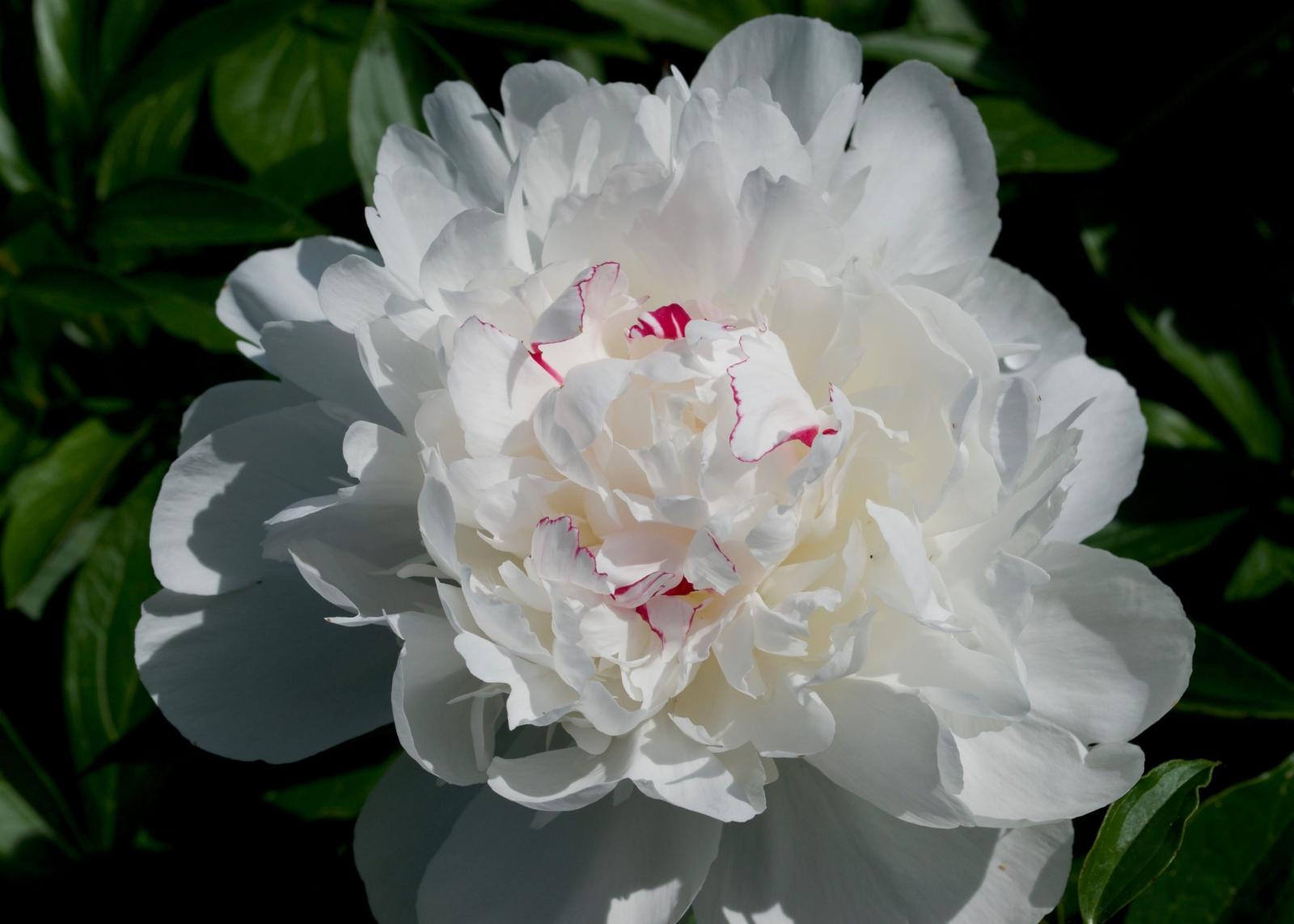Details
Additional Details

1916-Farr:24 Very large, globular, rose type. Pure white center, prominently flecked crimson; outer petals sometimes faint lilac-white on first opening. Very tall, strong, vigorous grower. Early. The most popular white variety for cut-flowers. 50 cts. See illus. facing p. 36.
1918-B006-I:08
1921-B014:11 Symposium II rating: 9.3
1923-SPN:345
1928-B:32 Double. 9.3 (Sym. 1921). White.
1928-B-d:096 Double type; very large; early. White, with prominent crimson flakes on a few central petals; fairly fragrant. Tall; very floriferous; stems usually strong. Foliage large, dark green. Excellent for both garden decoration and cutting. The flowers are globular, with wide petals of heavy substance, loosely arranged, and last well when cut. An old, thoroughly tested variety whose merit is proved by its very great popularity. “Does not last well when cut. Chicago market says it is a poor cut-flower.”— Brand. “Splashed, streaked, and edged with crimson. Usually flatfish rather than globular.”—Saunders. “Stems good but not rigid by any means—rather spreading.”—Little.
1962-W:075 Double. Large globular rose type, center pure white flecked crimson. Outer petals sometimes faint lilac white in first opening. Early. Fragrant. The name means the largest and gayest. Perhaps the most famous of all the older varieties.
1976-K:030 (Mielles, 1851) – Double – White – Early. Tall. Fairly fragrant. Very large. White with prominent crimson flakes on a few central petals. Very floriferous; stems usually strong. Foliage large, dark green. Excellent for both garden decoration and cutting. The flowers are globular, with wide petals of heavy substance, loosely arranged, and last well when cut. An old, thoroughly tested variety whose merit is proved by its great popularity. M.